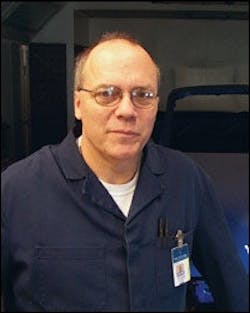The Reality of Collision Repair Education
When did your involvement in the industry begin?
I have had a passion for cars all of my life. I have worked in the industry and ran a small shop of my own before I took a job teaching. I went to trade school at Saint Paul College and have been employed here 15 years. After starting work at the college, I received a bachelor’s degree from the University of Wisconsin-Stout and consider that a very important “tool” in my toolbox. I still do special projects for a limited customer base and work on my own collection of cars. I like to think of these as art projects and really enjoy doing them.
What did you learn about collision repair through this career change?
There were many surprises in the transition from the trade to the school. One was the amount of product that it takes to keep students in operation and the amount of information available to me to share with students. It was amazing how many people knew who I was after I started at the school who did not know me before. This is a very visible job. I also didn’t realize how much time was involved in doing this job correctly. We run the school as close to a real shop as possible, so sometimes we have the same problems a shop owner has, but not as much of it. Fewer cars need to go out on Friday.
Why might fewer students be considering collision repair as a career?
I don’t think young people are aware of this as a trade you can make a living at. This is a very hard job, but many of the issues involved, such as health and safety, have improved a lot since I first worked in the trade. Middle schools and high schools have eliminated most, if not all, of the industrial arts classes, and many students have not been exposed to them.
Any concerns with the direction the industry is heading? What, if anything, do you tell students about working with insurance companies?
Some of my concerns are the specialization in the industry. I think by doing more than one thing, techs don’t limit their skills and can be more versatile employees. I always enjoy doing different tasks and not being locked into the same thing.
When talking to students about insurance companies, I bring in some insurance people and have them go over what it takes to do the job and how the tech will be compensated. Students must learn the system and communicate with insurers, do the job to pre-accident condition and in a timely manner. I also tell them the insurance company needs someone to fix the cars for them.
Is there any message or advice you wish to give our readers?
The shop owners have to understand the students’ need for experience and skills that take time to master. In school we have them for a short time and some have no mechanical skills (back to no industrial arts classes), so they learn them and hopefully get an employer who will work with them. The students have to adapt to how you run your business and, if possible, you should try to assign an apprentice to each journeyman as a mentor.
